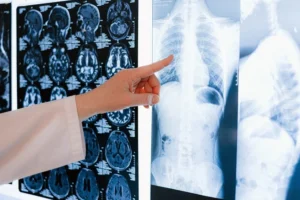Digital Health Tech: 7 Myths That Need to Be Addressed
- Updated on: Dec 12, 2023
- 3 min Read
- Published on Aug 9, 2022
Digital health tech is now an integral part of the healthcare ecosystem.
We consider it as an immaculate solution to bring peace of mind into the lives of patients, healthcare professionals and stakeholders.
However, people still have a misconception about its true potential!
7 common myths about digital health tech across the globe
1. It is taking the jobs.
2. Health tech is expensive.
3. It is only for the younger generation.
4. AI is replacing healthcare professionals.
5. It is not secure.
6. It is too complex to operate.
7. Not improving patient outcomes.
Lack of awareness is the prior reason behind these myths.
Unlocking the truth about it!
There is no doubt that technology is expanding at a tremendous rate in the healthcare ecosystem.
Thus, it’s essential to clear the myths from the market in order to experience the true potential of the health tech solutions.
1. It is creating opportunities. Not taking jobs.
Health tech lacks the most important thing – human emotion. Thus, it is not able to think of itself in critical conditions.
It offers comprehensive support using large-scale data.
Means, it eliminates the stress of the healthcare professionals at the point of care by allowing them to focus on the patient care experience.
2. Health tech offers high ROI. Thus, it’s worth investing in.
Yes. At some point, digital health tech is expensive.
However, it has the potential to drive down healthcare costs with ease.
For instance,
- Lowers the clinical hours
- Eliminates the unnecessary patients’ visits
- Enhance communication
- Reduces the medical errors
As a result, it boosts the overall revenue of the healthcare entities while at the same time increasing the ROI on digital health tech solutions.
3. Elderly people are discovering it as a go-to solution!
In the start, it was difficult for old-age people to use digital healthcare solutions such as mHealth apps and telehealth services.
But now, they’re preferring it more than traditional or live-in person visits.
As per the Pew Research Center,
- “40% of senior citizens owned a smartphone”
- “More than half (58%) of seniors 65 or older researched healthcare information online”
For instance, chronic conditions are the most common health concern among old-age people and healthcare technology helps a lot in improving chronic disease management.
4. AI is a helping hand for healthcare professionals. Not a replacement.
AI harnesses the power of clinical and patient data in order to help the care providers in making faster and more effective clinical decisions at the point of care.
However, it does not offer 100% accuracy.
In other words, AI needs large-scale and accurate data to give the most feasible result.
Thus, it is only capable of improving care outcomes and reducing medical costs.
AI in depression is the best example to understand it.
5. It is secure if there are no vulnerabilities issues.
There is no doubt that security is one of the major drawbacks of digital health solutions.
As per the HIPAA Journal, “In 2018, healthcare data breaches of 500 or more records were being reported at a rate of around 1 per day. Fast forward 4 years and the rate has doubled!”
There are several ways of avoiding data breaches in healthcare.
For instance,
- Encrypted data
- Two-factor authentication
- Fixing the network and data permission loopholes
6. It was complex at the start!
Technology always looks complex in the starting phase. But with time and advancement, it becomes straightforward and easily accessible.
Health tech was a headache in its development phase but because of the user-friendly interface and simple usability, it is not complex anymore.
Integration of the digital health tech with the mHealth applications has played a major role in eliminating the time, costs and complexity.
7. Health tech is the synonym for improving care outcomes
It opens the endless possibilities to enhance the care outcomes and patient care experience in the true sense without compromising the time, operational costs and resources.
Here is how.
- Reduces the clinical hours by automating the repetitive tasks. Pharmacy app development is the best example of it.
- Telemedicine that eliminates the travelling time and cost for the patients
- Patient Portal and education that lowers the patients’ follow-up visits
- RPA, medical device integration and AI reduce manual errors which directly improves the patient safety
- Healthcare chatbots give peace of mind to everyone under the same roof
- Medical IoT that enables patients to understand their health conditions more efficiently
These are some of the major aspects that play a substantial part in improving care outcomes.
Final words
Digital healthcare holds the enormous potential to elevate the entire healthcare ecosystem with ease.
However, choosing the right health tech solution is important in order to avoid all the roadblocks in the journey towards achieving business goals.











